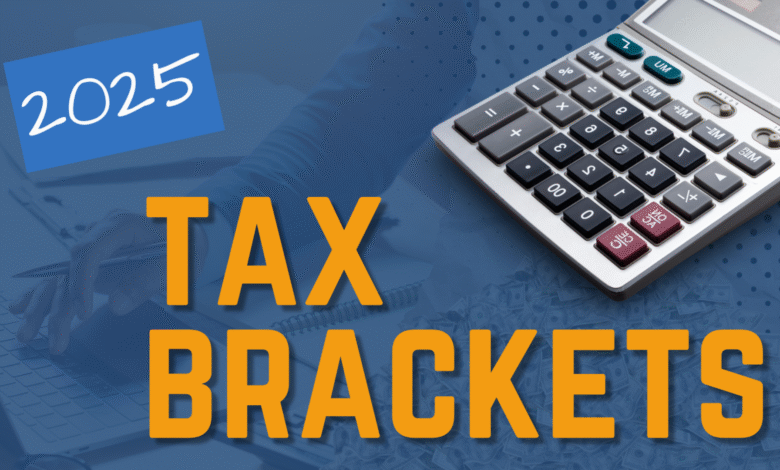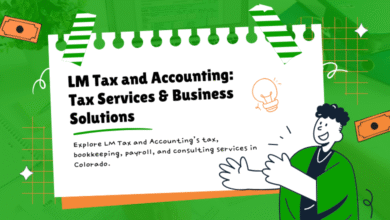Your 2025 Guide to U.S. Income Tax: Brackets, Credits & Smart Strategies

Filing your 2024 income taxes in 2025 doesn’t have to be complicated. With inflation adjustments to federal tax brackets, updated standard deductions, and refundable credits like the Earned Income Tax Credit (EITC), it pays to stay informed. Whether you’re optimizing your refund or planning for life in a no-income-tax state, this guide delivers the essential insights you need.
📅 Important 2025 Tax Year Filing Dates
-
Start of Filing Season: January 27, 2025
-
Standard Filing Deadline: April 15, 2025
-
Extension Deadline (Form 4868): October 15, 2025
Note: Filing an extension gives you more time to file—not more time to pay.
📊 Federal Income Tax Brackets for 2025
Thanks to a 2.8% inflation adjustment, 2025’s brackets help reduce “bracket creep.” Here’s what you can expect:
| Filing Status | Taxable Income Range | Tax Rate |
|---|---|---|
| Single | $0 – $11,925 | 10% |
| $11,926 – $47,700 | 12% | |
| $47,701 – $95,400 | 22% | |
| $95,401 – $206,700 | 24% | |
| $206,701 – $394,600 | 32% | |
| $394,601 – $626,350 | 35% | |
| Over $626,350 | 37% | |
| Married Filing Jointly | $0 – $23,850 | 10% |
| $23,851 – $96,950 | 12% | |
| $96,951 – $206,700 | 22% | |
| $206,701 – $394,600 | 24% | |
| $394,601 – $501,050 | 32% | |
| $501,051 – $751,600 | 35% | |
| Over $751,600 | 37% |
Source: NerdWallet
💵 2025 Standard Deduction Amounts
The standard deduction reduces your taxable income automatically and is often more beneficial than itemizing.
-
Single Filers: $15,000
-
Married Filing Jointly: $30,000
-
Head of Household: $22,500
This increase is designed to offset inflation and ensure lower tax burdens across most income levels.
💸 Earned Income Tax Credit (EITC) for 2025
The EITC is a refundable credit, which means you can receive a refund even if you don’t owe taxes.
Maximum EITC by Number of Children:
-
No children: Up to $1,700
-
One child: Up to $4,000
-
Two children: Up to $6,500
-
Three or more children: Up to $8,046
Eligibility: The EITC is based on your income, filing status, and number of qualifying children, with income thresholds defined annually by the IRS. For example, single filers with three children typically qualify if their income is below ~$63,398 in 2025.
Learn more and see if you qualify using the IRS EITC Assistant.
🗺️ States with No Income Tax (and What You Should Know)
As of 2025, the following nine states do not levy state income tax:
-
Alaska
-
Florida
-
Nevada
-
South Dakota
-
Tennessee
-
Texas
-
Washington
-
Wyoming
-
New Hampshire (only taxes dividends/interest income)
⚠️ But here’s the catch: These states often rely more heavily on sales, gas, or property taxes. While you may save on income taxes, your overall cost of living could still be high. Always consider the full tax picture when planning a move.
📲 IRS Tax Withholding Estimator: Why You Should Use It
The IRS Tax Withholding Estimator helps you determine if you’re having too much or too little federal tax withheld from your paycheck.
When to Use It:
-
At the beginning of every year
-
After life events like marriage, divorce, childbirth, or a new job
-
If you received a large refund or tax bill last year
Using this tool annually helps you avoid surprises and optimize your paycheck throughout the year.
⚠️ Common Income Tax Filing Mistakes
Avoid these frequent errors that delay refunds or trigger IRS letters:
-
❌ Wrong Social Security Numbers
-
❌ Incorrect Filing Status (Single vs. Head of Household)
-
❌ Math Errors in Deductions/Credits
-
❌ Missing Signatures or E-Sign Approval
-
❌ Not Reporting All Income (side jobs, crypto, 1099s)
✅ Double-check your return or use professional tax software to minimize mistakes.
🔧 Recommended Tools for Taxpayers
Here are free, trusted IRS tools to help you file smarter:
-
🧾 IRS Free File: For those with income under $79,000
-
📱 IRS2Go App: Track refund, make payments
-
📊 Tax Withholding Estimator: Adjust W-4 and avoid under/overpayment
-
📂 IRS EITC Assistant: See if you qualify for EITC
📌 Final Thoughts
With updated tax brackets, higher standard deductions, and valuable credits like the EITC, 2025 is a great time to take control of your income tax strategy. Understanding both federal and state-level tax responsibilities can help you make smarter decisions all year long.
Don’t wait until April!
Review your withholdings, use the IRS tools above, and explore tax-saving opportunities now to reduce stress later.
⚠️ Disclaimer
This article is for educational purposes only and is not intended as tax, legal, or financial advice. Please consult a certified tax professional for personalized guidance regarding your income tax situation.




